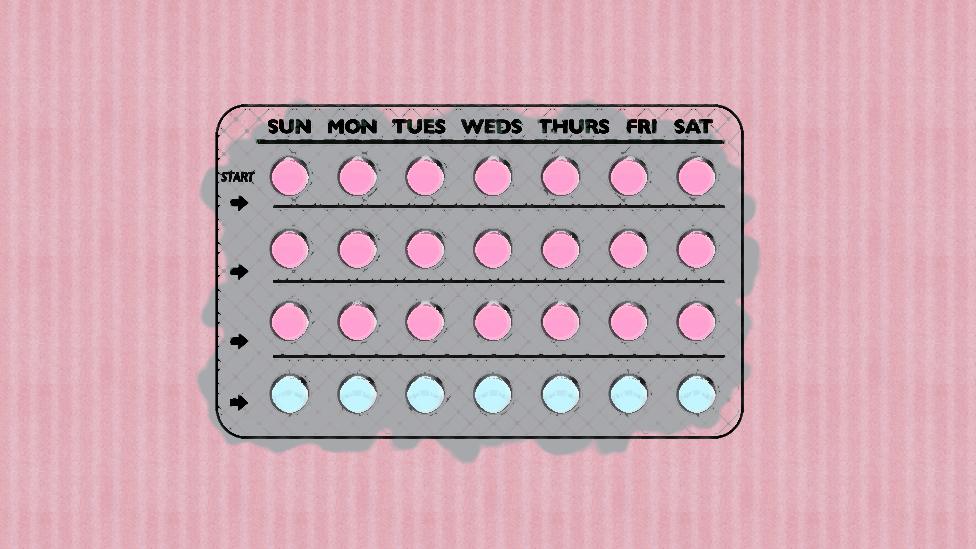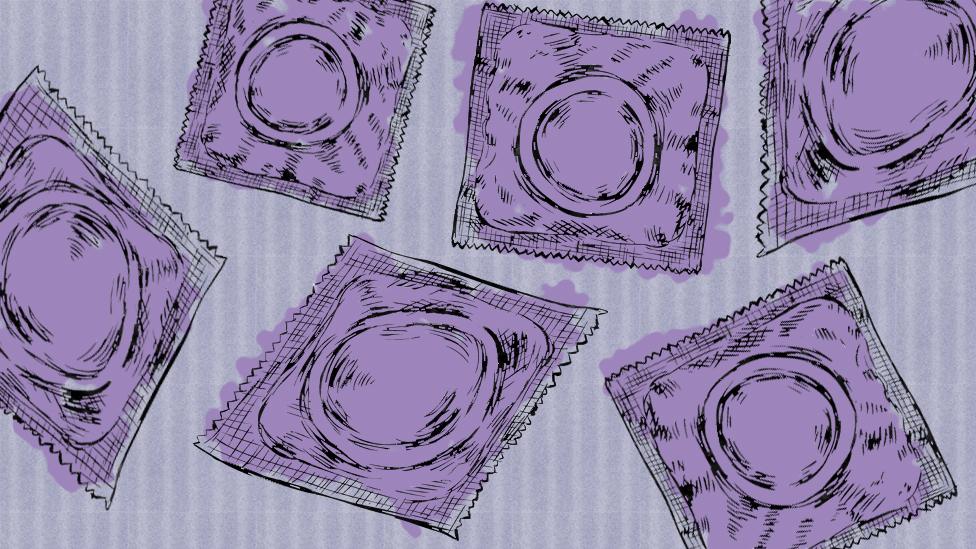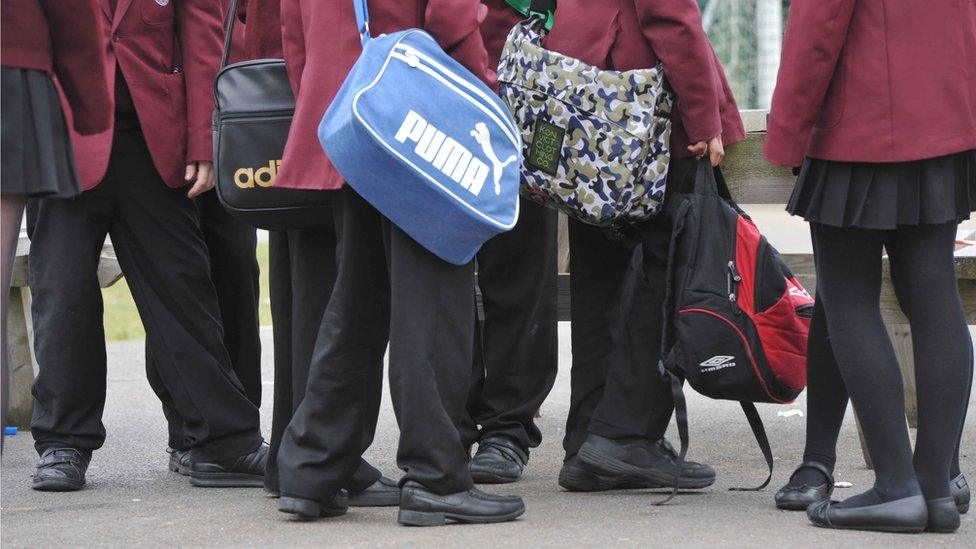'I didn't say no, but I regret that'
- Published

A 24-year-old secondary school teacher told the BBC she was shocked by the stories she heard from teenage pupils about their sexual activity.
Her frank account prompted many readers to share their concerns.

Catherine: I'm shocked by what I read. The exact thing happened to my 15-year-old daughter two years ago. The teacher could be talking about her experience. It was devastating.
At the time she didn't realise what was happening to her. Two years on she does understand and she's very angry, but the damage is done.
I'd like you to thank the teacher for speaking so boldly about a serious problem that needs addressing.

Jayne: Wow. I'm in my 40s but so much of what you wrote hit home with me. No one taught me any of the things your teacher spoke about.
My mum worked late nights in a factory. I didn't know I could and should say no. I did think it made me feel special. But it was crumby and lousy and I'm left years later thinking an otherwise idyllic childhood was shadowed and scarred somehow by crappy encounters with crappy boys.
I feel shame for it - until I read your item - maybe I can be/should be kinder to my younger self. If only girls were taught their self worth. It's ok to say no.

Shaun: Interesting article. I've just found out that my 14-year-old daughter has gone on the pill and is having sex with a boy one year older than her. I've tried talking to her and asking whether she has been pressurised into having sex but she says she's not.
Kids (certainly my one) just want to be an adult but she's not, she's 14 and the media/friends/social network is dictating that she has to be sexually active. This is a con and she's now on the pill pumping hormones into her body unnecessarily.
As a father all I can do (and have done) is ask her whether she is being pressured, is this what she wants to do and is she happy. Explaining that I cannot condone it, but I accept it, and that I am present and here if/when she wants to talk to me.

Too many parents lose it with their daughters and push them away. Better to accept and be ready for the inevitable "cry on my shoulders" that I'll get when she realises she has made a mistake.

Jade: I was in the same position and I understand where she is coming from but I still went with it. I regretted it once I got home and told my parents so I could get it off my shoulders.
My parents helped me a lot. It is always good to tell someone if you regret something after. If it's going to be a weight on your shoulders, tell someone.
I didn't say no, but I regret that because I haven't seen or heard from him since it happened and I know why. He didn't love me, he was only using me.

Rachel: This teacher is three years younger than me and believes that 14-year-olds did not exhibit the behaviours she discusses in the article, when she was in school. This seems absolutely ridiculous to me.
When I was 14, there were boys saying these things, and worse, every day. There was a ridiculous amount of pressure to be clean-shaven in school - and I didn't even have any sexual partners.
Boys were always commenting on how girls looked; to the point where I was often ridiculed for having hair on my arms.
Porn definitely shaped boys' opinions then, and it shapes boys' opinions now. But the blame can't all go to porn. Girls "beauty" magazines are to blame as well for these absurd expectations.

Rachel, mother to two teenage boys: The article gives the impression that boys are predatory and incapable of understanding and regulating their own urges. I have found the opposite to be the case.
I talk to my boys about respect, the pressure young women are under and that their desires are normal and healthy, but they should not expect these young women to meet those desires.
They suffer the occasional feminist rant with good grace. I also leave a few art photography books, maybe a not too sexy underwear catalogue lying around. Images of happy healthy smiling girls, with pubic hair (of course).
It might appear a little creepy, but in my opinion, as parents it would be foolish to bury our heads in the sand. Things are definitely not like when we were growing up and porn has a lot to do with that.

Caitlin: This is so true and I cannot express how grateful I am to the teacher who wrote this article for starting this conversation.
I'm 25 now. However, this article reflects exactly how the situation was when I was 14, 15, 16 and clearly nothing has changed. The sad thing is that these feelings and attitudes stay with you well past your early teen years.
The quote "almost like a validation of their appearance and attractiveness - or they think it is" really rings true for me - not just at school but throughout my university life, and even in my early 20s I feel this has always been a huge reason I have felt the desire to sleep with men.
Never for my own pleasure, but to boost my self-esteem and to validate that I was attractive to the opposite sex. An incredibly sad truth and one that I was only able to admit to myself very recently and, after speaking with friends about it, one which seems to be true among many bright and attractive young women.
There really needs to be some radical reform in the way young people are taught about sex and what sex education is focused on. Otherwise I fear that this is something that we will see more and more within society.

Holly: I was particularly struck by the topic of coercion among teenagers.
I am very interested in this topic as I believe it is a monumental issue that exploded with the introduction of the internet, and actually massively affected me - among thousands of other girls - through my teenage years and even to this day.
I currently work in a school and I am thinking about how we can help the current generation of young girls so they are as protected as possible from negative situations as outlined in your article.
I believe so much more needs to be done in schools to educate girls about self-respect and empowerment and would like to develop a course that could be implemented in PSHE [personal, social, health and economic].

Produced by Katherine Sellgren and Shayan Sardarizadeh
- Published5 October 2017

- Published7 June 2016
